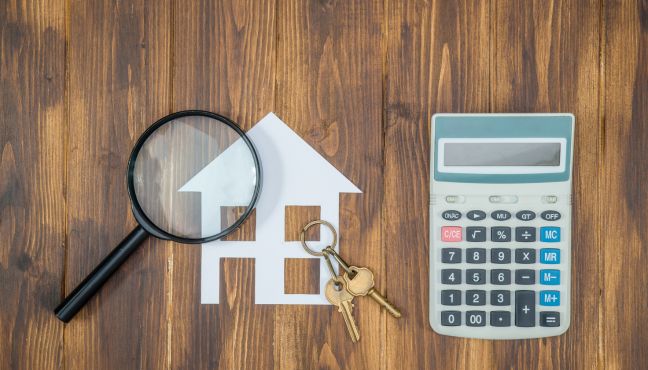Licensed in:
Everything You Need to Know Before Buying a House: A Guide to Mortgages
Buying a home is one of the most significant financial decisions you’ll ever make. But before you dive into the home-buying process, understanding how mortgages work is crucial.

Buying a home is one of the most significant financial decisions you’ll ever make. But before you dive into the home-buying process, understanding how mortgages work is crucial. A mortgage for buying a house is not just about securing funds; it’s about finding the right loan that fits your financial situation and long-term goals.
In this guide, we’ll cover everything you need to know about mortgages, from understanding the basics to choosing the best mortgage lender. Whether you’re a first-time buyer or refinancing your current home, we’ve got the tips and tools to guide you every step of the way.
Understanding Mortgages
A mortgage is a loan specifically used to finance the purchase of a home. When you take out a mortgage, you’re borrowing money from a mortgage lender and agreeing to pay it back over a set period, usually 15 to 30 years. The loan is secured by the property you’re buying, meaning the lender can take possession of the home if you fail to repay the loan.
Mortgage loans come in different types, such as fixed-rate mortgages and adjustable-rate mortgages (ARMs). With a fixed-rate mortgage, your interest rate stays the same throughout the life of the loan, making it easier to budget for monthly payments. On the other hand, an adjustable-rate mortgage starts with a lower rate, but the rate can change over time based on market conditions.
When looking for a home mortgage, it’s important to understand the terms of the loan, including the interest rate, the length of the loan, and any associated fees. These factors will affect your monthly payments and the total cost of the loan.
How Mortgages Help You Buy a Home
Mortgages are essential for most people when buying a home because they allow you to spread the cost of the house over many years. Instead of paying the full price upfront, a mortgage loan lets you borrow the money you need and pay it back in installments.
The process typically starts with applying for a home loan and getting pre-approved by a mortgage lender. During the pre-approval process, the lender will evaluate your financial situation, including your credit score, income, and debt-to-income ratio. This helps determine how much you can borrow and what your mortgage rates will be.
Once you’ve been pre-approved, you can start shopping for homes within your budget. When you find the right property, your mortgage lender will help finalize the loan, and you’ll move forward with purchasing your home. The lender may require a down payment, usually 3-20% of the home’s price, depending on the type of mortgage loan and your financial situation.
A home mortgage also allows you to benefit from the long-term financial advantages of owning a home, such as building equity. With each payment, you’re paying down the principal balance, which increases your ownership of the property.
Mortgage Calculators

Before committing to a mortgage for buying a house, it’s important to understand what your monthly payments will look like. This is where mortgage calculators come in. These tools help you estimate your monthly payments based on the loan amount, interest rate, and loan term.
Using a mortgage calculator is an easy way to determine if a home is within your budget. You can adjust factors like the down payment, loan term, and interest rate to see how they affect your monthly payments. By experimenting with different scenarios, you can find the loan option that works best for your finances.
Mortgage calculators can also help you assess whether refinancing is a good option by comparing your current payments to potential new rates. Whether you’re applying for a home loan or looking at refinancing mortgage loans, these calculators give you a quick overview of what to expect.
Using a mortgage calculator helps you avoid surprises and makes the home-buying process more transparent. It’s an essential tool for anyone looking to get the best deal on a mortgage loan.
Understanding Mortgage Rates
Mortgage rates play a significant role in how much you’ll pay for your home. The rate you secure determines how much interest you’ll pay over the life of the loan, which can add up to a substantial amount.
There are two main types of mortgage rates: fixed-rate mortgages and adjustable-rate mortgages (ARMs). With a fixed-rate mortgage, your interest rate stays the same throughout the term of the loan, giving you predictable payments. On the other hand, an ARM starts with a lower rate but can increase over time, which means your payments could change.
When searching for the best mortgage rates, it’s essential to shop around and compare offers from different mortgage lenders. Rates can vary significantly, and a slight difference in rates can lead to significant savings over time. Be sure to consider the total cost of the loan, including closing costs, fees, and the length of the term.
Your credit score also impacts the mortgage rates you qualify for. The higher your score, the lower the rate you’ll likely receive. This is why it’s important to maintain a good credit score before applying for a home mortgage loan.
How to Choose the Right Mortgage Lender
Choosing the right mortgage lender is just as important as finding the right home. A good mortgage lender will help you navigate the home-buying process, offer competitive mortgage rates, and provide valuable advice on which loan options best suit your needs.
When choosing a mortgage lender, consider factors like the range of loan products they offer, their reputation, customer service, and the rates they provide. Some lenders may specialize in certain types of loans, such as first-time homebuyer loans, while others may offer more flexible terms for those looking to refinance.
Another important consideration is whether to work with a local mortgage lender or a national lender. Local lenders may provide more personalized service and a better understanding of the local real estate market, while national lenders may have more resources and better rates.
Lastly, consider working with a mortgage broker if you need more personalized assistance. A mortgage broker works with multiple lenders to find the best rates and terms for your situation, saving you time and effort in comparing offers.
Steps to Getting Pre-Approved for a Mortgage
What is Mortgage Pre-Approval?
Getting pre-approved for a mortgage is one of the most crucial steps in the home-buying process. It shows sellers that you’re serious about purchasing a home and gives you a clear idea of how much you can afford.
How to Get Pre-Approved for a Mortgage:
- Contact a Mortgage Lender: Start by reaching out to a trusted mortgage lender. They’ll help you through the pre-approval process.
- Provide Financial Documentation: You’ll need to provide proof of income, employment, credit score, and debt-to-income ratio.
- Review Loan Options: Your mortgage lender will assess your financial situation and provide a list of loan options you may qualify for.
- Receive Pre-Approval Letter: Once approved, you’ll receive a pre-approval letter, which you can use when making offers on homes.
Pre-approval is important because it helps you determine your budget, gives you a competitive edge when bidding on homes, and speeds up the mortgage approval process once you’ve selected a home.
Common Mistakes to Avoid When Buying a House
Mistake 1: Not Getting Pre-Approved for a Mortgage
Getting pre-approved for a mortgage should be one of the first steps in your home-buying journey. It gives you a clear budget and helps you avoid wasting time on homes that are out of your price range.
Mistake 2: Overlooking Additional Costs
While the home price is the biggest cost, you also need to account for home loan rates, property taxes, insurance, and maintenance. Ensure you understand the total cost of ownership.
Mistake 3: Ignoring Your Credit Score
Your credit score directly impacts your mortgage rates. Higher scores typically qualify for lower rates, so take the time to check your score and work on improving it if needed.
Mistake 4: Failing to Shop Around for the Best Rate
Different mortgage lenders offer different rates and terms. It’s important to compare offers to find the best deal that suits your financial needs.
Mistake 5: Choosing the Wrong Type of Mortgage
Understanding your mortgage options, such as fixed-rate mortgages or adjustable-rate mortgages, is essential to making the right decision. Talk to your mortgage lender to understand which loan fits your budget and long-term goals.
Frequently Asked Questions (FAQs)
What is the best mortgage for buying a house?
The best mortgage for buying a house depends on your financial situation and long-term goals. Options include fixed-rate mortgages, adjustable-rate mortgages (ARMs), and first-time homebuyer loans. Consult with a mortgage lender to determine the right fit for your needs.
How do I get the best mortgage rates?
To get the best mortgage rates, shop around and compare offers from different mortgage lenders. Your credit score, loan type, and down payment all influence your rate. Working with an experienced mortgage broker can also help you secure a competitive rate.
What documents are needed to apply for a home loan?
To apply for a home loan, you’ll need proof of income, credit score, employment history, and debt-to-income ratio. A mortgage lender will guide you through the process and let you know exactly what documents are required.
Can I qualify for a home loan with bad credit?
It is possible to qualify for a home loan with bad credit, but your options may be limited. You might qualify for an FHA loan or work with a mortgage lender who specializes in helping buyers with lower credit scores.
How much of a down payment do I need for a home loan?
The down payment for a home mortgage loan typically ranges from 3% to 20%, depending on the loan type and your financial situation. First-time homebuyer loans often require lower down payments, making it easier to get started with homeownership.
Conclusion
Buying a home is a big decision, and getting the right mortgage loan is crucial to making the process smooth and financially manageable. With the right information and guidance from a trusted mortgage lender, you can find a home loan that works for your budget and long-term goals.
Remember to use mortgage calculators to estimate your monthly payments, compare mortgage rates, and get pre-approved before you start shopping for your dream home. Whether you’re a first-time homebuyer or a seasoned buyer, understanding your mortgage options will help you make the best decision.